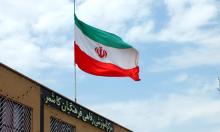Penelope Puts European Union in Disarray
Prodi, Blair and D’Estaing are symptoms of the disease called the European Union, a disjointed group of 15 Member States striving desperately to forge a Federation in a geopolitical area which has resisted the notion since Roman times.
The latest bone of contention is over the future administrative organs of the European Union. The President of the European Commission, the Italian Romano Prodi, drew up a secret document codenamed Penelope, which was essentially a blueprint for a European Union based on 30 Member States. Prodi was strongly criticized for not informing his colleagues of the project, which he had hoped to present in the Convention on the Future of Europe next June, which will discuss an enlarged Union of 500 million people.
In his moves to protect his position, Romano Prodi has proposed that the President of the European Commission should have additional powers, with foreign policy responsibilities of national governments being transferred to the Commission, whose President would be directly elected by Members of the European Parliament and not the heads of government of EU countries, as is the case today. Prodi also wants to abolish the individual nations’ right of veto, declaring that “If the veto has frequently brought paralysis with 15 member states, think what would happen with 25 or more”.
These moves have brought Prodi into conflict with the United Kingdom’s Tony Blair, no doubt eyeing the future for possible career moves. Blair wants there to be a President of the European Union, who would be elected by the Heads of government. He favours certain matters of national interest, such as foreign policy and taxation, remaining within the legislative responsibilities of each member state.
Giscard D’Estaing, the former President of France and now the Head of the Convention of the Future of Europe, leans towards Prodi on some matters, while supporting Blair on others. For instance, he agrees with lair that the national governments should retain control over their foreign policy, whereas Prodi wants to create the position of Secretary for Foreign Affairs in the Commission, who would be responsible for the foreign policy of all the member states of the Union members.
However, on the issue of the appointment of the future leader of the European Union, the opinions could not be more divided. Blair wants a strong EU President elected directly by the Heads of Government of the member states. Prodi, on the other hand, wants a consinuation of his post (President of the European omission), with added powers, being elected first by MEPs and then this appointment to be confirmed by EU leaders. Finally, D’Estaing is reported to be in favour of a college of electors formed by a mixture of national Members of Parliament and MEPs to choose a President.
On the Euro, and its introduction into the international financial organisms, such as the World Bank and the IMF, Blair wants this to be a matter for national parliaments to discuss, whereas Prodi considers that this is a matter for the Commission. D’Estaing has no fixed position one way or the other.
The circus continues while the thousands of bureaucrats formulate and regulate policy while the vast majority of the EU’s 350,000,000 citizens are kept wholly in the dark about how their future is being shaped.
John ASHTEAD PRAVDA.Ru LONDON UNITED KINGDOM
Subscribe to Pravda.Ru Telegram channel, Facebook, RSS!





